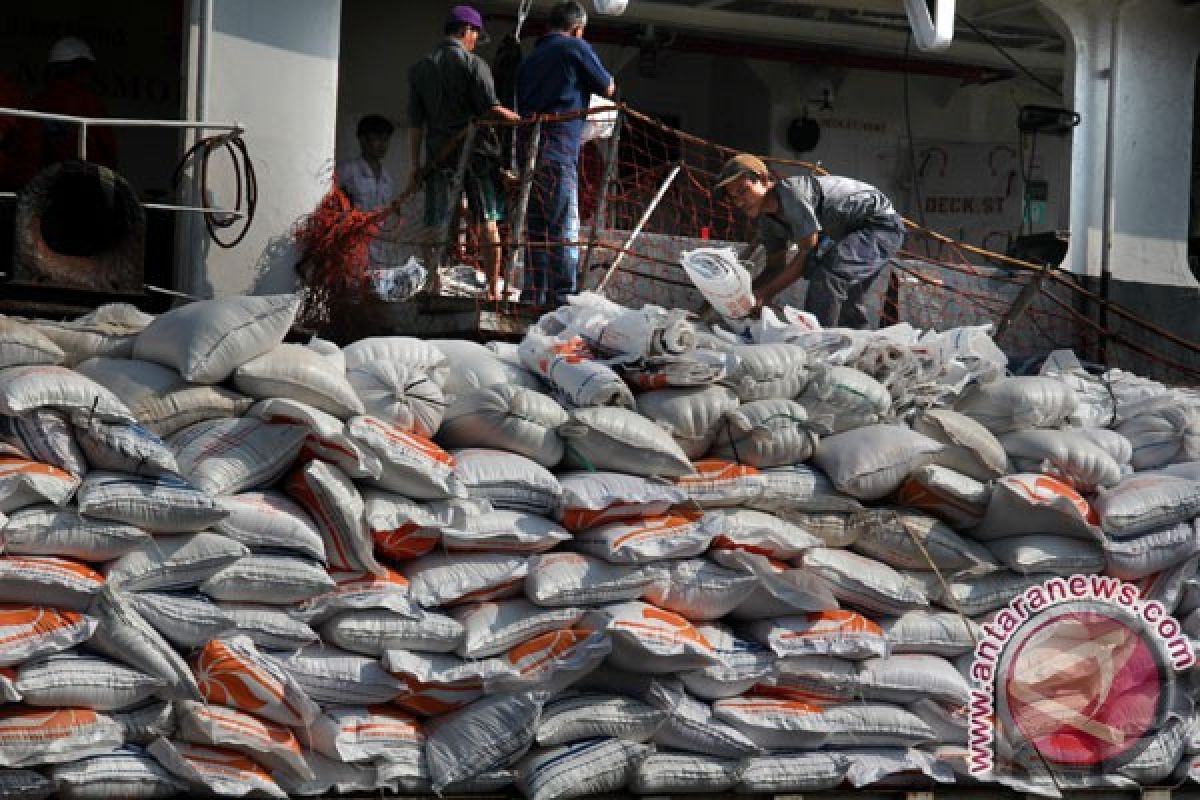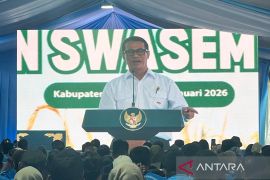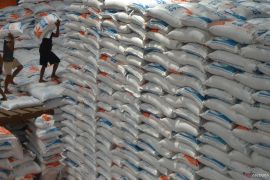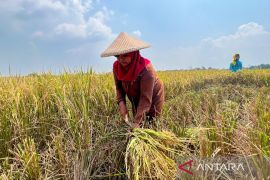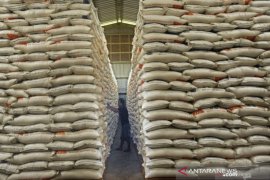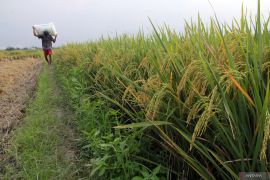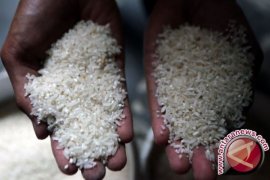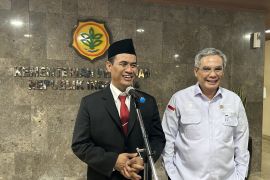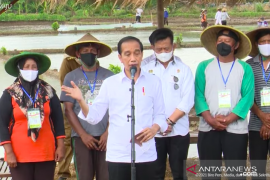It is still stored at Bulog warehouses and will be released only if it is really needed."Jakarta (ANTARA News) - On paper, Indonesias rice production is adequate to meet its domestic needs, yet uncertain climate conditions such as drought due the El Nino phenomenon, often disturb production or delay plantation seasons.
This leads the government to think of importing rice as part of its efforts to reinforce its food resilience and prevent an increase in the number of poor people.
Last year, for example, the government decided to import 1.5 million tons of rice even though the Central Bureau of Statistics (BPS) had predicted that domestic production would reach 43.940 million tons, well over the estimated domestic consumption at 33.36 million tons.
Indonesia was expected to harvest 75 million tons of dry unhusked rice, or equal to 43.940 million tons of rice in 2015, according to the BPS. However, the agency later revised downward rice production data to 74.99 million tons due to the El Nino-induced drought.
Despite being revised, data from the Ministry of Agriculture shows that Indonesias rice consumption in 2015 will reach 33.36 million tons. Thus, the country will see a surplus of rice production.
In spite of the predicted production surplus, the government still decided to import rice.
This year, the government is again planning to import more rice. Rice imports will be made because rice planting seasons in the country were shifted after the El Nino weather phenomenon hit the country last year.
Last year, a total 1.5 million tons was imported. However, up until the end of December 2015, the volume that had been imported has not yet reached one million tons. So, the remaining rice is expected to arrive during the first quarter of 2016.
Although there still remains some rice quota to be imported in the first quarter, the government will continue to need to import more rice, apart from that agreed in 2015, to reinforce stocks in 2016, Trade Minister Thomas Lembong said.
Indonesia decided to import 1.5 million tons of rice from Thailand and Vietnam, the minister said some time ago. The government was even seeking new supplier countries, such as Pakistan and India.
Indonesia will import rice from Pakistan and India in an effort to prevent the rise in the number of poor people in the country, Vice President Jusuf Kalla said. "The rice price is a decisive factor that could create poverty. If it is not stable it will increase the number of poor people. Therefore, rice will be imported so that prices and people will not increase while domestic need is met," Jusuf Kalla said Friday (January 8).
Rice prices constitute a decisive factor in the lives of people, which is why the government felt it was responsible for maintaining the stability of rice prices. Price stability is needed to maintain stock for consumption by among others importing it from Pakistan and India.
"The main reason is to maintain price stability because the price of rice is a decisive factor. The problem is not whether it comes from Pakistan or elsewhere, but whether we have adequate stock," Vice President Jusuf Kalla stressed.
Indonesia is studying the possibility of importing rice from Pakistan, Minister Thomas has said. "Efforts to cooperate in this sector is on-going. We already have a Memorandum of Understanding (MoU) with the Pakistani government through a government-to-government partnership. Now, the state logistics board Bulog is studying the technical details of rice stock in Pakistan," he noted.
Besides Pakistan, Indonesia is also looking at India, as the world biggest rice exporter, to import rice. Indonesia and India will soon sign a MoU to that effect.
The plan to import the rice was initiated by the Ministry of Trade in its efforts to increase rice stock at home, Thomas said.
Rainfall or prolonged drought as a result of extreme global climate changes is one of the main reasons for Indonesia to import rice and to strengthen food resilience. Therefore, this year, Pakistan and India will export rice to Indonesia.
The planned rice import by Indonesia from Pakistan was also reported by the Pakistan Today in its Friday (January 8) edition. It carried a story on an agreement between Pakistan, through its Trade Minister Khurram Dastgir Khan, and Indonesia on the rice export deal.
Pakistan agreed to export one million tons of rice worth US$400 million for a six-year period from 2016 - 2019.
The rice export agreement was signed between Trading Corporation of Pakistan (TCP) and Indonesias Perum Bulog. Apart from Pakistan, Indonesia was also known to have concluded a rice import deal with India.
However, imported rice will be used only as a reserve. It will be used only if stock at home is not adequate, Agriculture Minister Amran Sulaiman said. "The imported rice is only kept as a reserve," the minister said when inspecting a rice market operation at the Cipinang Rice Wholesale Market in East Jakarta recently.
Rice already imported is still being stored at Bulog warehouses, according to the agriculture minister.
"The imported rice is not for market operations. It has not yet been released. It is still stored at Bulog warehouses and will be released only if it is really needed," Amran noted.
There was no need to use the imported rice now because the current stock at Bulog still amounted to 1.2 million tons, he guaranteed. There will even be an additional 3.5 million tons from next months harvest (harvest season in February 2016).
"Up until now, we have not yet released imported rice although the El Nino-induced drought last year was one of the longest in Indonesian history. We hope we will no longer use imported rice this year. After all, in February we will have a rice harvest season on one million hectares of rice fields with a predicted yield of six million tons of unhusked rice or equal to 3.5 million tons of rice," he said.
(T.A014/INE/KR-BSR)
Reporter: Andi Abdussalam
Editor: Priyambodo RH
Copyright © ANTARA 2016
